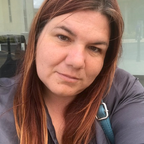Transfusion Science
Early Insights into the Blood Group Genotyping Programme at NHSBT Filton
Transfusion Science
Early Insights into the Blood Group Genotyping Programme at NHSBT Filton
9am – 9.30am BST, 23 September 2025 ‐ 30 mins
Transfusion Science
Abstract
The Blood group genotyping programme at NHS Blood and Transplant (NHSBT) Filton is a pivotal initiative designed to improve transfusion safety and transplant outcomes, particularly for patients with sickle cell disease, thalassaemia, and rare inherited anaemias who receive regular transfusions. These patient groups often face significant challenges in finding compatible blood and are at increased risk of alloimmunisation and transfusion reactions. This project aims to enhance their quality of life by facilitating more precise donor-recipient matching, reducing immunological complications, and supporting personalised transfusion strategies.
With high-resolution genotyping of both patient and donor samples, the project leverages advanced molecular techniques and bioinformatics tools to deliver accurate extended antigen profiling. HEA (Human Erythrocyte Antigen) genotyping is used to improve red cell matching and minimise antibody development in patients without antibodies and to better match blood for patients with antibodies.
To achieve these objectives, the programme employs standardized DNA extraction methods to ensure high-quality samples. The ThermoFisher AxiomTM Total Blood Typing Solution facilitates high-throughput genotyping, enabling efficient processing of large sample volumes from both patients and potential donors. An integrated analysis package supports data quality and generation of predicted phenotypes of 52 red cell antigens.
Initial findings have identified areas for optimization, particularly in sample processing and data quality control. Over the next year we plan to genotype 10,000 patients and 20,000 donors using this technology to enable better matching of blood.
In summary, the NHSBT Genotyping Project at Filton represents a significant advancement in precision transfusion and transplant medicine. By focusing on our frequently transfused patient population, who are also from diverse backgrounds, this programme is helping to lay the groundwork for more equitable and effective patient care.
Speakers
Doyinsola Olajide
Healthcare Scientist, NHS Blood and Transplant, Molecular Diagnostics Filton
Cellular Therapies in Cambridge
Transfusion Science
Cellular Therapies in Cambridge
9.30am – 10am BST, 23 September 2025 ‐ 30 mins
Transfusion Science
Abstract
The Cambridge Cellular Therapy Laboratory (CCTL), embedded within Cambridge University Hospitals NHS Foundation Trust and located on the Cambridge Biomedical Campus, plays a central role in the delivery and advancement of cellular therapies in the East of England. As an HTA-licensed and JACIE-accredited facility, CCTL serves as the sole regional processing centre supporting both the Blood and Marrow Transplant (BMT) and CAR-T cell therapy programmes.
In addition to its commissioned services, CCTL operates as a Regulated Cell Handler under MHRA oversight, facilitating the delivery of both licensed and unlicensed cell-based therapies across the Trust. With the global cell therapy landscape evolving rapidly and clinical demand intensifying, CCTL is undergoing significant expansion in capacity, infrastructure, and service scope. This presentation will provide an overview of CCTL’s current capabilities, its integral role in regional and national therapeutic delivery, and its strategic direction in supporting the next generation of advanced therapies.
Speakers

Sarah Albon
Director, Cambridge Cellular Therapy Laboratory (CCTL), Cambridge University Hospitals Foundation Trust
Life after leukaemia – how my patient experience shaped what I do
Transfusion Science
Life after leukaemia – how my patient experience shaped what I do
10.30am – 11am BST, 23 September 2025 ‐ 30 mins
Transfusion Science
Abstract
This presentation will explore my experience and how it led me to where I am now personally and professionally.
As an acute leukaemia survivor I have spent the past nine years, advocating for patients, and sharing my experience with healthcare professionals, scientists and stakeholders highlighting the vital part they play in the pathway of someone like me.
I needed numerous transfusions and platelets to survive and know that Biomedical Scientists played an important role in the safe provision of the blood components as well as with the other vital tests and interventions during my treatment.
This is my story and how I went from trying coming to terms with a life changing diagnosis to becoming a patient advocate and PPI Lead for Transfusion 2024.
While often working behind the scenes, Biomedical Scientists play a critical role in the patient care pathway, despite rarely engaging directly with the individuals whose samples they analyse. Each sample represents a person with a life, a family, and loved ones — in my case, the parent of an eight-year-old child whose future could have been profoundly altered by a different clinical outcome. The speed, precision, and dedication of Biomedical Scientists were central to the life-saving interventions I received. Every spike in temperature, assessment of treatment response for leukaemia, and diagnosis of complications such as neutropenic colitis depended on timely and accurate laboratory input. Also moments of real quality of life significance such as being able to return home for a brief respite — were contingent upon critical lab markers like neutrophil recovery. This underscores the indispensable, though often invisible, contribution of Biomedical Scientists to patient outcomes.
Learning outcomes
Delegates will:
- Gain knowledge of a patients perspective of Transfusion as a treatment
- Understand how the speaker became an advocate for patients and the public following her experiences
- Learn about the speakers collaborative work
Speakers

Anna Mamwell
Patient and Public Involvement Lead, NHS Blood and Transplant, Barnsley Centre
Give Blood, Spread Love Community Engagements: Exploring the Impact of Ethnically Matched Blood Donation in Sickle Cell Care
Transfusion Science
Give Blood, Spread Love Community Engagements: Exploring the Impact of Ethnically Matched Blood Donation in Sickle Cell Care
11am – 11.30am BST, 23 September 2025 ‐ 30 mins
Transfusion Science
Learning outcomes
Delegates will:
- Understand the importance of ethnically matched blood for patients with sickle cell
- Gain insight into the impact of community engagement initiatives
- Learn how culturally sensitive outreach contributes to safer transfusion practices
Speakers
Still ‘hub’sessed – empowering biomedical scientists to enhance patient care
Transfusion Science
Still ‘hub’sessed – empowering biomedical scientists to enhance patient care
11.30am – 12pm BST, 23 September 2025 ‐ 30 mins
Transfusion Science
Abstract
A 2022 survey conducted by the UK Transfusion Laboratory Collaborative (UKTLC) identified significant challenges in training and mentoring within hospital transfusion laboratories. Key findings included the absence of dedicated training budgets for transfusion, limited opportunities for staff to attend educational events, and a strong desire among respondents for greater access to technology to support self-directed learning. In response, the survey recommended that UKTLC, in collaboration with other professional bodies, develop interactive tools and resources to facilitate workplace-based learning.
Aligned with NHS Blood and Transplant’s (NHSBT) ‘Transfusion 2024’ (T24) strategy, the Transfusion Training Hub was created to help address those needs. Since its launch, the Hub has received over 40,000 views, demonstrating strong engagement. We explore the impact of the Transfusion Training Hub, highlighting its role in supporting workforce development and ultimately improving patient care.
Speakers

LIMS change in blood transfusion
Transfusion Science
LIMS change in blood transfusion
9am – 9.30am BST, 24 September 2025 ‐ 30 mins
Transfusion Science
Learning outcomes
This presentation will cover:
- Overview of Change management process in blood transfusion LIMS (Completion) of change control documentation) on time
- Importance of having effective and robust LIMS in blood transfusion laboratories
- Importance of writing a good business case, tendering process and contract award
- The Role of Trust and Pathology IT in the process (Collaboration and team effort)
- Writing of test scripts and end to end testing including active participation of colleagues
- Low level design, testing, staff training and competency assessment
- Importance of carrying out risk assessment and procedures in place for downtime
Speakers
Chigozie Onuba BSc (Hons), MSc, CSci, MIBMS, IOSH
Senior Specialist Biomedical Scientist, Barts Health NHS Trust
Operation "Complex Mess" in a transfusion laboratory
Transfusion Science
Operation "Complex Mess" in a transfusion laboratory
9.30am – 10am BST, 24 September 2025 ‐ 30 mins
Transfusion Science
Abstract
The growing reliance on Laboratory Information Management Systems (LIMS) and automated platforms within Blood Transfusion laboratories has brought significant benefits to patient safety and care throughout the transfusion process—enhancing reliability, speed, efficiency, and reducing human error.
However, these advantages are only sustainable if IT systems remain uninterrupted. When severe, prolonged disruptions occur—such as the recent cyberattack affecting six Blood Transfusion laboratories across the London network—the very systems designed to enhance safety and efficiency become sources of risk, impacting both laboratory operations and overall hospital care.
Like most Blood Transfusion laboratories, our laboratory had a local Business Continuity Plan (BCP), and its resilience was truly tested during our recent cyber-attack, which forced us into downtime processes from June 2024 to September 2024. Are you confident that your local BCPs could cope with such an event? Have your LIMS, Electronic Health Records (EHR), and blood tracking systems been challenged using table-top exercises or simulations to demonstrate how your lab would cope during long-term management of an unplanned LIMS downtime? It is critical for Blood Transfusion operational managers, incident command teams, clinicians, and IT analysts to work collaboratively to identify and address gaps in emergency preparedness. These diverse but interconnected teams must align their planning and recovery efforts.
By the end of my presentation, you will gain insight into the real-world challenges our laboratory faced in meeting patients’ specific requirements during downtime—and the essential role of collaborative planning across multidisciplinary response teams, both within and beyond the laboratory.
Ongoing staff engagement in designing contingency instructions that closely mirror routine processes is vital. The ability of laboratory staff to adapt to evolving circumstances, along with the continuous refinement of downtime instructions to ensure regulatory compliance, are key pillars of operational resilience. The BCP proved to be robust, but highlighted the importance of horizon scanning and regularly updating our downtime procedures to improve our preparedness and response. We now have regular simulation exercises and actual events to pull from, and share my expertise.
Ultimately, downtime operations can never match the efficiency or safety of routine workflows, and can at times feel like organised chaos. Anticipating the challenges they bring—and implementing proactive mitigation strategies—is essential to successfully traverse complex operations such as mass casualty events and prolonged downtime. This includes structured recovery processes and a heightened awareness of patient safety risks that persist even after systems are restored. Clear, detailed guidance must support laboratory staff in completing reconciliation efforts that meet regulatory standards and ensure safe, effective transfusion practices. For example, one of our gaps identified was the first and middle name issue due to manual data input, which resulted in 540 patients out of 2873 (19%) having incorrect patient details; therefore, we introduced a 2D barcode on EHR order forms to automate patient data entry during the issue of blood as a key learning from the incident and recovery.
Speakers

'All-Wales introduction of cffDNA testing – trials and tribulations
Transfusion Science
'All-Wales introduction of cffDNA testing – trials and tribulations
10.30am – 11am BST, 24 September 2025 ‐ 30 mins
Transfusion Science
Speakers

E-requesting and reporting of NHSBT reference tests – progress, challenges, next steps
Transfusion Science
E-requesting and reporting of NHSBT reference tests – progress, challenges, next steps
11am – 11.30am BST, 24 September 2025 ‐ 30 mins
Transfusion Science
Abstract
Transfusion 2024 outlined key priorities for enhancing patient safety through electronic requesting and reporting of pathology tests. This system facilitates structured, end-to-end order communications, integrating results directly into hospital Laboratory Information Management Systems (LIMS) and thus improving the accuracy of information exchanged, reducing manual steps and the potential for transcription errors, saving time whilst improving the quality of healthcare delivery and patient experience.
After a successful fetal RHD screening pilot, NHSBT began onboarding additional Hospital Transfusion Laboratories (HTLs). The Transfusion 2024 project team created a database cataloguing hospitals, their LIMS and Electronic Patient Record (EPR) systems, and referral practices. A project dashboard was created to track progress.
Exceeding the 2024/25 goal of 30 live sites, the project is rapidly approaching the 2025/26 target of 65 sites.
This development has improved efficiency in HTL’s and NHSBT laboratories by removing manual processes. This not only saves time but enables more accurate sample identification as the NHS number is mandated and the HTL sample barcode is used as a unique identifier, ensuring patient demographics are correct. The estimated date of delivery at the correct gestation is included, preventing rejections. E-requesting also allows auditable sample tracking, and using this process has reduced turnaround time of results.
Initially, only HTLs on or moving to Winpath Enterprise or EPIC were contacted to implement this functionality. Challenges included variability in LIMS configurability, delayed implementations and upgrades, process inefficiencies, lack of HTL project support, midwifery team delays, and confusion at NHSBT due to outdated information. Lessons learned have been shared and used to improve the implementation process.
Next steps include developing the functionality with other LIMS and EPR providers, and expanding to Red Cell Immunohaematology and Histocompatibility and Immunogenetics, meeting the objective for NHSBT to implement electronic requesting and reporting of pathology tests.
Speakers

Blood grouping and antibody screening in pregnancy: Guideline update
Transfusion Science
Blood grouping and antibody screening in pregnancy: Guideline update
11.30am – 12pm BST, 24 September 2025 ‐ 30 mins
Transfusion Science
Abstract
Overview of the updates to the British Society for Haematology guideline on blood grouping and antibody screening in pregnancy.
Speakers

Case Studies Workshop
Transfusion Science
Case Studies Workshop
12.45pm – 1.45pm BST, 24 September 2025 ‐ 1 hour
Transfusion Science
Speakers


Incompatible beginnings: An HDFN case study
Transfusion Science
Incompatible beginnings: An HDFN case study
2pm – 2.30pm BST, 24 September 2025 ‐ 30 mins
Transfusion Science
Abstract
This presentation explores a case of haemolytic disease of the foetus and newborn (HDFN) due to maternal anti-D alloimmunisation, presenting as severe neonatal jaundice and anaemia at birth. The case required urgent investigation and intervention, including phototherapy, intravenous immunoglobulin (IVIG), and a double exchange transfusion.
As the case occurred out of hours in a non-specialist centre, challenges were encountered in accessing suitable blood components and managing an unfamiliar emergency. We will review the pathophysiology of HDFN, outline antenatal monitoring strategies, and describe the key postnatal investigations which informed the diagnosis. The presentation will also focus on lessons learnt, including the implementation of local quality improvement initiatives and the importance of training and competency development.
Learning outcomes
Through the discussion of a case study delegates will:
- Understand the pathophysiology of HDFN
- Be able to interpret diagnostic investigations
- Be aware of treatment strategies and preventative measures
Speakers

Cassandra Hemmings
Pathology Training and Education Lead, Betsi Cadwaladwr University Health Board
Fetal maternal haemorrhage measurement – what, when, how
Transfusion Science
Fetal maternal haemorrhage measurement – what, when, how
2.30pm – 3pm BST, 24 September 2025 ‐ 30 mins
Transfusion Science
Learning outcomes
Delegates will learn:
- What is fetal maternal haemorrhage measurement
- When is it used and what clinical outcomes can result.
- What are the different methodologies their pros and cons.
- How do you do measure of Uncertainty for this testing.
- What is new on the horizon.
Speakers

Anti-G
Transfusion Science
Anti-G
3pm – 3.30pm BST, 24 September 2025 ‐ 30 mins
Transfusion Science
Learning outcomes
Delegates will:
- Understand what Anti-G is
- Have an awareness of when extended Anti-G investigation is required
- Understand reporting and follow-up requirements in cases involving Anti-G
Speakers

A trauma case in the QMC record books
Transfusion Science
A trauma case in the QMC record books
4pm – 4.30pm BST, 24 September 2025 ‐ 30 mins
Transfusion Science
Abstract
This presentation explores a significant major haemorrhage trauma case at the Queen’s Medical Centre, home to 24 hours in A&E, managed solo within the Blood Transfusion department. The case, one of the largest blood usage MHP's on record at QMC, highlights the critical challenges faced during the rapid-response situation.
Key learning outcomes include the essential role of adequate staffing and the value of reliable backup, the importance of stock control and not overlooking fundamental processes under pressure, and the need for clear communication. The case also underlines the value of timely escalation, with Haematology Consultant involvement serving as both a lifeline and a strategic sounding board.
Learning outcomes
Delegates will understand:
- The importance staffing/back up
- Stock control – Don’t lose sight of the simple things
- Communication – dedicated MH line for clear communication throughout
- Escalation – Haematology Consultant involvement can be a lifeline and sound board
Speakers

To phenotype or to genotype – that is the question!
Transfusion Science
To phenotype or to genotype – that is the question!
4.30pm – 5pm BST, 24 September 2025 ‐ 30 mins
Transfusion Science
Speakers
Outcomes for hospitals from the Infected Blood Inquiry Recommendation No 7
Transfusion Science
Outcomes for hospitals from the Infected Blood Inquiry Recommendation No 7
9am – 9.30am BST, 25 September 2025 ‐ 30 mins
Transfusion Science
Learning outcomes
Delegates will understand:
- What was the Infected Blood Inquiry
- What were the recommendations
- What specific recommendations most affect hospital blood banks
- What outcomes are resulting from recommendation no. 7
Speakers
Post Infected Blood Inquiry: What next for laboratories?
Transfusion Science
Post Infected Blood Inquiry: What next for laboratories?
9.30am – 10am BST, 25 September 2025 ‐ 30 mins
Transfusion Science
Speakers

Kerry Dowling
Transfusion Laboratory Manager and Chair of UKTLC , University Hospital Southampton NHS Foundation Trust
Patient blood management – anaemia management in Wales
Transfusion Science
Patient blood management – anaemia management in Wales
10.30am – 11am BST, 25 September 2025 ‐ 30 mins
Transfusion Science
Abstract
This lecture covers anaemia management in the setting of elective and emergency surgery and the roll out of a national programme and test set to the whole of NHS Wales.
Speakers

Dr Caroline Evans MBBCh FRCA
Consultant Anaesthetist, Cardiff and Vale University Health Board
Monoclonal antibody therapies
Transfusion Science
Monoclonal antibody therapies
11am – 11.30am BST, 25 September 2025 ‐ 30 mins
Transfusion Science
Abstract
Delegates will understand:
- The role of CD38 monoclonal antibodies in multiple myeloma, including:
- Mechanism of action
- Current therapy indications
- The evidence supporting current treatment indications (including CASSIOPEIA, GRIFFIN, PERSEUS for transplant-eligible and MAIA for transplant ineligible patients)
- Potential future uses of CD38 monoclonal antibodies, including:
- Treatment for high-risk smouldering myeloma patients (including the MODIFY study using subcutaneous isatuximab)
- Host immunity manipulation to improve immune fitness and response to BCMA CAR-T Cell or bispecific antibody therapy.
- Laboratory challenges caused by CD38 monoclonal antibodies both within and outside transfusion medicine, with possible mitigation strategies
Speakers
Dr Marquita Camilleri
Haematology Consultant, Cambridge University Hospitals NHS Foundation Trust
RCI Assist: a referral support tool
Transfusion Science
RCI Assist: a referral support tool
11.30am – 12pm BST, 25 September 2025 ‐ 30 mins
Transfusion Science
Learning outcomes
Delegates will understand:
- The background to Transfusion 2024 pathology projects
- How to use the RCI assist referral support tool
- How to improve staff capability and confidence in the hospital transfusion laboratory
Speakers

Meet the Panel - HSD/Portfolio queries
Transfusion Science
Meet the Panel - HSD/Portfolio queries
12.45pm – 2pm BST, 25 September 2025 ‐ 1 hour 15 mins
Transfusion Science
Speakers


A day in the life of a Consultant Clinical Scientist: A joint role between Bart’s Health and NHSBT
Transfusion Science
A day in the life of a Consultant Clinical Scientist: A joint role between Bart’s Health and NHSBT
2pm – 2.30pm BST, 25 September 2025 ‐ 30 mins
Transfusion Science
Learning outcomes
Delegates will learn:
- The purpose of the transfusion practitioner professional development framework
- How the framework will support biomedical scientists working in the Transfusion Practitioner role
- How the framework will support the patient, practitioners, and the wider transfusion team
Speakers

Dr Josephine McCullagh
Consultant Clinical Scientist, NHS Blood and Transplant and Barts Health NHS Trust

Shaping the future: How the Transfusion Practitioner Framework will support Biomedical Scientists working in the Transfusion Practitioner role
Transfusion Science
Shaping the future: How the Transfusion Practitioner Framework will support Biomedical Scientists working in the Transfusion Practitioner role
2.30pm – 3pm BST, 25 September 2025 ‐ 30 mins
Transfusion Science
Abstract
A professional development framework is a recognised, structured approach used to outline the knowledge, skills, and behaviours required for a given role, and is already well established across many professions within the NHS. Until now, however, there has not been a nationally recognised framework for transfusion practitioners (TPs). This may be partly due to the relatively recent introduction of the role in the early 2000s. Equally important is the unique diversity of the TP workforce, as practitioners can enter the role from a range of origin professions, including biomedical science, nursing, midwifery, and operating department practice. While there are many shared elements in TP roles across organisations, local practices and individual experiences can vary significantly. This variation makes it challenging to develop a standardised framework that reflects both the common core responsibilities and the local nuances of the role.
This diversity enriches the TP profession and brings a breadth of expertise to transfusion practice. Yet, it also creates challenges in clearly defining the role, identifying training needs, and assessing professional development and impact. To address these challenges, a national professional development framework for TPs is being co-developed by NHS Blood and Transplant, the National Blood Transfusion Committee, and the TP workforce across England.
The framework is structured around four core domains: Facilitation of Learning, Professional and Clinical Practice, Research and Innovation, and Leadership and Management. It aims to standardise expectations, support career progression, and serve as a benchmarking tool for both practitioners and managers.
A recent national survey highlighted that 37% 2024 Transfusion Practitioner Snapshot Survey of the current TP workforce are biomedical scientists, with this number having increased since the 2011 survey. The framework will support biomedical scientists transitioning into the TP role by providing a clear, structured pathway for developing the wide range of skills required, such as clinical decision-making, multidisciplinary collaboration, and autonomous practice. It will offer guidance to help individuals navigate the shift from a laboratory-based role into a more clinically focused and multidisciplinary position. In addition, the framework will promote a consistent understanding of the TP role across organisations, enabling services to identify skills gaps, set training priorities, and evaluate the impact of TPs on patient care and service delivery.
Learning outcomes
Delegates will understand:
- The purpose of the transfusion practitioner professional development framework
- How the framework will support biomedical scientists working in the Transfusion Practitioner role
- How the framework will support the patient, practitioners, and the wider transfusion team
Speakers

Aimee Burtenshaw
Transfusion Practitioner, University Hospitals of Derby and Burton NHS Foundation Trust

Digital portfolio – How’s it going? Training officer and portfolio student perspectives
Transfusion Science
Digital portfolio – How’s it going? Training officer and portfolio student perspectives
3pm – 3.30pm BST, 25 September 2025 ‐ 30 mins
Transfusion Science
Learning outcomes
Delegates will learn:
- How is digitalisation improving Laboratory Training
- The experience of completing the digital specialist portfolio in Haematology and Hospital Transfusion Practice from the candidates perspective
- The experience of completing the digital specialist portfolio in Haematology and Hospital Transfusion Practice from the training coordinators perspective
- The main differences between the digital specialist portfolio and the previous paper-based format
- How increased digitalisation of training portfolios can be further improved in the future
Speakers

Cerian Thomas
Specialist Biomedical Scientist, Cardiff and Vale University Health Board

Ashleigh Davies
Blood Transfusion Support Manager, Cardiff and Vale University Health Board
Opening and Closing Plenary programmes



















